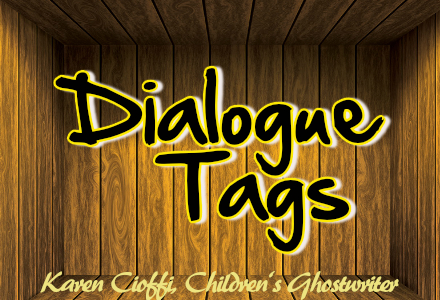


Reading the actual dialogue and other sensory details of events is like watching the movie.
#DIALOGUE TAGS IN FIRST PERSON MOVIE#
Reading a summary is like having your friend tell you about a movie they just watched.

Giving readers the specific, sensory information, including the actual words of dialogue, creates the illusion that they are present at the events and receiving the information directly-which makes the story seem more real. It puts more distance between the reader and the story, so that it feels less real. Summarizing events (including conversations) creates the feeling of hearing a story second or third-hand. Rather than making your story more believable, leaving out dialogue is more likely to make it less believable, because believability emerges from specific and authentic details. Narrators are good story tellers (otherwise, why would we read their stories?), and good story tellers provide detail, including the actual words spoken by the characters. Whether the narrator is the main character, a minor character in the story world, or omniscient (the voice of the author), readers are quite used to the convention that the narrator knows very specific details of the story's events. Answer: Traditionally, most books have been written in past tense from the point of view of a narrator who already knows the end of the story, and therefore is usually writing about events that occurred many years before.


 0 kommentar(er)
0 kommentar(er)
